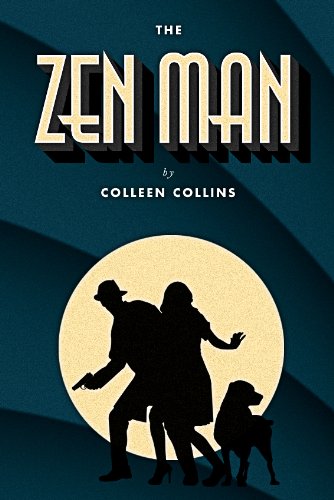On Friday we announced that C.W. Lemoine’s Spectre Rising is our Thriller of the Week and the sponsor of thousands of great bargains in the thriller, mystery, and suspense categories: over 200 free titles, over 600 quality 99-centers, and thousands more that you can read for free through the Kindle Lending Library if you have Amazon Prime!
Now we’re back to offer our weekly free Thriller excerpt:
4.8 stars – 10 Reviews
Text-to-Speech and Lending: Enabled
Here’s the set-up:
After a combat incident in Iraq, Cal “Spectre” Martin was grounded and told he would never fly an F-16 again. Years later, he started a new civilian life with his F-16 pilot fiancée while being haunted by the nightmares of his last deployment.
But when she goes missing on a routine training mission off the South Florida coast, Spectre unwillingly finds himself thrust back onto the frontlines of the war on terror – this time, not in the skies over Iraq, but on the streets of Miami.
While searching for answers, Spectre uncovers a deadly international conspiracy that shakes his beliefs to the core and threatens national security. The stakes have never been higher as Spectre rises to overcome his inner demons, challenge his friendships, and take to the skies once again in a daring final mission.
And here, for your reading pleasure, is our free excerpt:
Basra, Iraq
2009
“Thunder 42, Knife 11, standby for new tasking,” the secure radio hissed and crackled to life. It was the voice of the British Joint Terminal Attack Controller (JTAC) whom he had been working with for the last two hours.
“Knife 11, Thunder 42, go ahead,” he replied, stuffing his water bottle back in his helmet bag. He had been airborne in his F-16 for over four hours, having refueled three times. It was the standard mission in the new Iraq. Takeoff, check in with the JTAC, stare at dirt through the targeting pod for an hour, hit a tanker, check back in with the next JTAC at the next tasking, wash, rinse, and repeat, until the mission window ended six hours later and it was time to land. Not quite as glamorous as the early days of the war where everyone cleaned off their weapons racks on every sortie.
But Captain Cal “Spectre” Martin had never seen that Iraq. It was his second deployment, and despite his air medal, he had always managed to bring his bombs home. He had come close to dropping bombs many times over his thirty combat sorties, usually arriving just as the hostilities were dying down, or being called off because the locals had taken care of the problem already. The price of success, he thought.
It truly was a new Iraq. In late 2008, the United States and Iraqi governments came to terms on a Status of Forces agreement. This agreement defined the withdrawal of coalition forces from major Iraqi cities and laid the foundation for their eventual troop drawdown. It also required warrants for searches of any homes and buildings not related to combat. It was the first step of the United States government handing back the keys of Iraq to the Iraqi people.
As a result of this new agreement, however, the rules of engagement for coalition forces became more restrictive. No longer could a JTAC designate a target for destruction based on enemy activity. Search warrants had to be acquired. Iraqi police had to be notified. The remaining airpower, F-16s doing twenty four-hour patrols over predesignated areas, was relegated to searching for suspicious activity through their advanced targeting pods.
And Spectre had been doing just that. He had checked in with Knife 11 to look for suspicious activity – people placing Improvised Explosive Devices on known supply routes mostly. He was number two in a flight of two, separated by thirty miles working with two different JTACs – standard ops with fewer jets to patrol the skies these days.
“Thunder 42, we have a TIC at MSR NOLA, convoy requests immediate support, contact Whiskey 80 on Green 10, how copy?” the JTAC responded in his thick British accent.
He had heard it several times before on his first deployment – TIC, or Troops In Contact, was the magic acronym indicating friendly forces were currently engaging hostiles. Under the current ROE, it was the only way airborne weapons employment was authorized. After hours of lethargy, it was the only phrase that got his blood pumping. Someone on the ground was in trouble, and he was the cavalry. It was his first time hearing it on this tour, and he just hoped he could get there in time to make a difference.
“Thunder 42 copies all, will contact Whiskey 80 on Green 10, copy troops in contact,” Spectre replied in an unshakably cool, calm tone despite the adrenaline now coursing through his veins.
“Cleared off, and happy hunting,” the Brit replied.
He checked the cheater card on his kneeboard for the frequency called Green 10 and typed it in the upfront control of the F-16. He typed in the coordinates for the center point of MSR NOLA, the codename for the main highway westbound out of Basra. During daylight hours, it would serve as a busy highway for civilian and military traffic, but now at 0200 and with a curfew in effect, it would only be used by the military and those looking for a fight.
Of course, Spectre knew they weren’t really looking for a fight. The people still fighting in Iraq were terrorists. They were looking to create fear and panic, and disrupt the progress of rebuilding Iraq. They wanted the infidels out of their land, so they could create a strict Islamic regime that would ultimately be used to oppress the Iraqi people. They were cowards who couldn’t win a head on fight with even the budding Iraqi Security Forces. So instead, they played the asymmetric warfare game: ambush the vulnerable convoy with IEDs, harass the American bases with Indirect Fire attacks, and kill the women and children of those who sought to make their country better. It was all part of the desperate last stand of a defeated group.
With his sophisticated Embedded GPS/INS navigation system now directing him to the hot zone, Spectre sped to the area at nearly 500 knots. He knew in these situations time could mean the difference between life and death for the guys on the ground. They were the real reason things were going so well in Iraq, and he wasn’t about to let the cowards they were facing get in a sucker punch.
He keyed his auxiliary radio to contact his flight lead. Despite having flown most of the mission alone, he was still the wingman, and his flight lead would be the ultimate decision maker. He needed to get the information to his flight lead as quickly as possible so their firepower would be available to the convoy in trouble.
“Thunder 41, 42 on Aux,” he said, indicating that he was calling his flight lead on their secondary radio.
“Go ahead Spectre,” he replied. Major Brett “Pounder” Van Pelt was an experienced Instructor Pilot (IP) and flight lead. He had been to Iraq three times prior. He had seen the transition firsthand from the “Wild West” to the restricted “look but don’t touch” mindset.
“We’ve got a TIC at MSR NOLA; I’m inbound to contact Whiskey 80 on Green 10.”
“Copy, go check in with the JTAC, I’m on my way, don’t do anything without me,” Pounder replied sternly. He was a fast burner in the F-16 community, having served as an operational test pilot testing the latest and greatest weapons for the active duty before joining the reserves. Just prior to the deployment, he was even selected by the Air Force Reserve Command as the alternate to go to the coveted Air Force Fighter Weapons School. Pounder was going places.
The convoy was over 50 miles away, but Spectre arrived on scene in just over five minutes. He checked in with the JTAC, callsign Whiskey 80, who gave him the on scene situation. A small convoy had been moving food and medical supplies along MSR NOLA from Basra to a village near Zubayr when an IED exploded, wounding two Iraqi soldiers and severely damaging one of their HUMVEEs.
“Requesting armed overwatch while we move the wounded to the MRAP and repair the HUMVEE, go with Fighter to FAC,” the excited voice said over the secure radio. It was Whiskey 80, the American JTAC in the convoy. He sounded young – couldn’t be older than 21, Spectre thought. What a shame, not even old enough to drink legally in America, but old enough to have people try to blow him up.
“Roger, we’ve got one F-16 with one on the way, each jet with two by GBU-12, two by GBU-38, and five hundred-fifty rounds of 20 millimeter, thirty minutes of playtime. Understand armed overwatch, confirm you’re strobing?” he asked, repeating the instructions and giving the fighter to FAC brief, an abbreviated way for pilots to give Forward Air Controllers on the ground their weapons load out and time on station. Tonight each jet was loaded out with two 500lb GBU-12 Laser Guided Bombs, two 500lb GBU-38 GPS guided bombs, and 550 rounds in the 20MM Vulcan cannon sitting over his left shoulder.
“We are now,” Whiskey 80 replied, indicating that he had turned on his Infrared Strobe to mark their position.
Spectre took his Night Vision Goggles out of their case and attached them to his helmet. He had been flying all night with them off. He hated them. Unless there was some tactical importance to wearing them, he avoided it at all costs – they just gave him a headache. If there were ever a time of tactical importance, it was now. After a quick scan, he quickly picked up the bright strobe flashing amongst the headlights on the highway. He picked out six vehicles, and then slewed his Litening II Advanced Targeting Pod to their position.
Using the Forward Looking Infrared mode of his targeting pod, he could easily make out the vehicles. The first two were HUMVEEs, followed by three MRAPS – the Army’s armored fighting vehicle designed to withstand IED attacks and ambushes, and one HUMVEE at the rear. The black and white pod image wasn’t very clear at that altitude, but it appeared that the rear vehicle was the damaged one.
After confirming the JTAC’s position, he began scanning the nearby area for threats. He put the jet into a 45-degree bank, right hand turn and set the autopilot to hold that turn so he could focus on the ground. The right hand “wheel” kept the F-16 in an orbit over the target area, keeping the targeting pod that was mounted on the right chin mount from being masked by the fuselage.
Pounder checked in just as he settled into his search. “Do you hear me on secure?” he asked on aux.
“Negative, I’m talking to the JTAC now,” Spectre replied.
“I can’t hear shit, what’s going on?” Pounder demanded.
When he was a Lieutenant, Spectre never appreciated Pounder’s attitude, but now it was just flat out annoying. A situation was developing on the ground and for whatever reason Pounder couldn’t get his hands in it, so he was being short.
“There’s a disabled vehicle and wounded, we’re tasked with Armed Overwatch. I’ll pass you the coordinates on the datalink, but so far nothing is happening,” he said, trying not to show his irritation.
“Sounds like Iraqi standard – hurry up and do nothing. Well I’m almost at Tanker Bingo, so we’ll have to yo-yo, think you can handle it by yourself?” Pounder asked. He was nearing the preplanned fuel state to discontinue whatever tactical operations they were conducting so they could make the tanker or go home with enough fuel to land safely. With yo-yo operations, Spectre would stay on station alone until Pounder could get fuel on a tanker and make it back. Once back, they would complete a hand off and Spectre would head to the tanker alone, ensuring a fighter would always be overhead.
“I’ve still got 20 minutes until Bingo, I can handle it,” Spectre replied.
“Fine, but don’t do anything without me. I’ll be back in 20 minutes.”
Spectre acknowledged and continued with his search. He knew the rules. Ever since a young wingman nearly hit friendlies on a drop while his flight lead was at a tanker, the reigning Operations Group Commander had decreed that no aircraft would drop ordnance as a singleton, no matter what the situation. Flight leads were not supposed to leave their wingmen alone on station, but given the situation, Spectre wasn’t about to argue and leave these guys alone on the side of a highway in the wee hours of the morning.
“Thunder 42, this is Whiskey 80, we are taking fire!” the JTAC screamed. His voice was cracking. Spectre could hear gunfire in the background. His eyes snapped back to his targeting pod. He could see the friendly troops hiding behind the vehicles on the road. Zooming out the pod image, he picked up two trucks on the other side of the road with several combatants in the back. He couldn’t tell what kind of weapons they were holding, but they appeared to be shooting.
“Thunder 42, Whiskey 80, we have troops in contact, danger close, standby for 9 line,” he screamed once again. More shots could be heard in the background. They were under heavy fire. The 9 line served as a way for the Forward Air Controller to pass target information in a Close Air Support situation.
Spectre hesitated. He had strict marching orders from Pounder and the rules of engagement – don’t do anything solo. He could see the friendlies taking heavy fire on the ground. They didn’t have the firepower to hold the enemy combatants off by themselves for long, and he had no idea when Pounder would be back. He didn’t have time to wait.
“Thunder 42 ready to copy 9 line,” he replied. Fuck it. He was there to protect the troops on the ground, not watch them die while he sat idly by with his hands tied by ridiculous rules to cover some general’s ass.
The JTAC screamed the required information to him and then said, “Request you strafe these fuckers NOW! We’re taking heavy fire and they are advancing on our position!”
He had all the information he needed. With the proximity of the enemy to the friendlies, the fragments from the bombs would potentially injure them. He had to be surgical, and the 20MM was his choice. Loaded with High Explosive Incendiary rounds, the bullets would disable any vehicles and rain fire upon the cowards who had ambushed the convoy.
He called up the strafe pipper in the Head Up Display and set the aircraft systems up for his strafe pass. He would make his roll-in parallel to the friendlies so as not to shoot over them or toward them.
His adrenaline was now full throttle. Despite that, he remained focused. He rolled in, establishing a 30-degree nose low dive using the pitch ladders and flight path marker in his HUD. He set the gun cross at the top of the HUD on the target. It was the first truck.
“Thunder 42, in from the east, tally target, visual friendlies,” he said, his still-calm voice masking the fear and excitement he was feeling.
“You’re cleared hot!” the JTAC replied, indicating Spectre was cleared to expend ordnance on the target.
He steadied the boresight cross on the truck as the gun pipper symbology rose to meet the target. The pipper in the F-16 gave a constantly computed indication of where the bullets would go at any given time. It was commonly referred to as the “death dot” because where you shot, death would follow.
As he reached the preplanned range with the pipper on the truck, he squeezed the trigger. The jet vibrated with a metallic rattle as the Vulcan cannon spat one hundred rounds per second. He held the trigger for three seconds, then released the trigger and began a 5G recovery from the dive.
For what seemed like hours, there was quiet on the radio. He reestablished his right hand wheel and picked up the target again in the targeting pod. He could make out very little as the dust settled from where he hit.
“Good hits! Good hits!” the JTAC exclaimed. “You’re cleared immediate reattack on the second truck, you’re cleared hot!”
Spectre picked up the second truck visually through his Night Vision Goggles. It was now speeding westbound towards the front of the convoy.
“Confirm the truck is moving to your position,” Spectre asked, trying to slow things down so as not to be too rushed and make a mistake.
“That’s affirm, he just… oh shit!” the reply was cut off. Spectre’s heart sank. He saw the glowing streak of something large and hot shooting from the truck in his FLIR. He knew it immediately. It was an RPG. He watched as the second HUMVEE in the convoy was rocked by the explosion and the infrared targeting pod image washed out from the heat of the blast.
The situation had gone from bad to worse. The radio was silent. He watched helplessly as the truck that had fired the RPG turned back away from the convoy to dig in and continue its assault. He was already risking it, but without a JTAC on the ground, he could not shoot.
“Help!” a scream came over the radio.
“Say again,” Spectre asked, hoping it was the JTAC.
“This is the MRAP commander, we are under heavy fire with several casualties, our JTAC is down, request Emergency CAS, my initials are Hotel Sierra!”
Unlike working with a qualified JTAC, Emergency Close Air Support was the most difficult CAS scenario to manage. It referred to a situation in which a fighter provided support with a ground controller who was not a qualified air controller. Someone with no prior training would be guiding bombs and bullets from fighters onto nearby targets. The rules of engagement allowed it, but only at the discretion of the operator in the air, and only in the direst of situations because of the risk of friendly fire.
He called the MRAP commander back. Time to go to work. He confirmed that no personnel or vehicles had moved from the highway. The second truck was still the target.
He picked up the second truck visually and rolled in just like the first time, establishing a 30-degree dive and putting the boresight cross on the truck.
“Thunder 42, in from the west,” he said, hoping his new controller would respond.
“Do it! Take them out!” the MRAP commander exclaimed.
He exhaled a bit. At least he had positive contact with someone. Once in range, he put the pipper on the truck and squeezed the trigger for two seconds. The bullets spat from the trusty 20mm just has they had done before until the gun was empty
Just as he began his recovery from the attack, he heard “Abort, abort, abort!” It was the call reserved for discontinuing the attack.
His heart sank.
Homestead, FL
Present Day
Victor Alvarez stood alone in the grass parking lot. It was still dark out, but the horizon glowed orange in the distance as the sun began its upward trek. He hated morning, especially South Florida mornings. The air was almost completely saturated with moisture, and although it was almost fall, it was still eighty degrees.
The parking lot was relatively isolated. It had taken him twenty minutes of driving down a dirt road to reach it. It had previously served as a parking lot for field workers to drop off their vehicles, but with the recent recession and the foreclosure of the landowner, it was now just a vacant lot. He was in an area known as the Redlands of Homestead. Only minutes from the Everglades, it was mostly open farmland with a few houses scattered here and there. It was the perfect place to escape the congestion of Miami, or the eyes of an unwelcome third party observer.
Alvarez leaned against his car as a lone pair of headlights approached from the distance. It was almost six o’clock in the morning. He pulled a handkerchief out of his pocket and wiped the sweat away from his brow. Despite having spent his whole life in this climate, he had still never fully embraced it.
The car pulled to a stop next to his. The silver Honda Civic was much louder than he expected. It must have a broken muffler or something, he reasoned. Not quite what he was expecting from a man like the one he was about to meet, but in this business, he had learned not to assume anything, especially not when dealing with Americans.
Alvarez ran his fingers through his jet-black hair and casually approached the car. He was holding a small envelope in his left hand and resting his hand on his holstered gun with his right. The man in the battered Civic was right on time and at the right place, but that didn’t make him trust the stranger just yet.
“Are you Victor?” the man in the car asked. It was too dark in the car to make out his face.
“Yes, do you have the documents?” he replied with a thick Spanish accent.
“Here’s everything you asked for, flying schedules, personnel files…everything,” the man responded nervously, handing Alvarez a thick manila envelope through the car’s window.
Alvarez leaned on the roof of the car. He was a tall man, and the low ride height of the car brought the window only up to waist level. He took the envelope from the man and put it on the roof of the car. Alvarez then handed the man the small envelope that he had been holding.
“These are your instructions. The first of the funds has already been transferred. The rest will be delivered upon completion of this operation.”
“Oh…ok… uh… But no one knows my name right? There’s nothing pointing to me when this is over, right?” The man was fidgeting in his seat.
“Your government will never find out,” Alvarez reassured him. “Don’t worry.”
Alvarez had seen it many times before. He had been an agent with the Cuban Dirección General de Inteligencia for ten years. He had spent most of those years in South Miami. It was easy to blend in there. The majority of the population was Cuban or Hispanic, and almost everyone spoke Spanish fluently. No one even raised an eyebrow. He had used Americans many times before. Occasionally it was for intel, but often it was for assistance. They seemingly always tried to justify what they were doing, whether it was for their families or some political reason. Alvarez didn’t care, but he still didn’t respect them. He needed them for his operations, but they were traitors to their country, plain and simple.
Alvarez watched as the man opened the envelope and read the instructions. He looked for any signs of hesitation or weakness. He had been assured that his new contact would follow through, but he was more than ready to terminate their arrangement with a 9MM round to the man’s temple at the first sign of weakness.
“Do you have any questions?” he asked with a toothy grin.
“No, I can do it.”
“Good. Go. You’ll be just fine.” Alvarez grabbed the files off the roof of the car and pulled out his cell phone as he walked back toward his car. The little Civic sounded like a bumblebee as it sped off into the now rising sun. He dialed the number he had been given by his handler. It was time to check in.
“How did it go?” the voice asked.
“It is done. We have everything we need to proceed.” Alvarez knew his cell phone was probably being monitored. The Dirección General de Inteligencia was the main state intelligence agency of Cuba. Since opening for business in late 1961, the DGI had been involved in intelligence and espionage operations across the globe. They had been involved in aiding leftist revolutionary movements in Africa, the Middle East, and mostly Latin America. In the United States, the DGI had been heavily involved with international drug trade, assisting homegrown terrorist cells, and intelligence gathering operations for third party countries. The CIA, NSA, and FBI all had them on their watch lists.
“Excellent. Select the target and do what is necessary.”
“Yes, jefe. You won’t be disappointed.” He hung up the phone and tossed the documents on the passenger seat of his car. This was the first operation he had undertaken without the knowledge of his government. It was going to make him a hero and wildly rich. He had a lot of work ahead of him, and a very short timeline.
R-2901
Four Months Later
“Rattler 21, Thunder 11 checking in as fragged, ready for words,” the metallic voice said over the Harris PRC-117F Manpack Radio. The dismounted radio, called a manpack, served as a multi-band, multimode radio that covered the gamut of waveforms. Frequencies covered included VHF, UHF, and UHF SATCOM radio. The unit was also compatible with the Single Channel Ground and Airborne Radio System, an Army system. It served as a lifeline for any JTAC to support assets in the air.
“Roger Thunder 11, Rattler has you loud and clear, situation is as follows: we have several wounded friendly forces holed up in the urban village. They are unable to move at this time and are surrounded by multiple hostiles in pickup trucks,” he replied looking up at the jets circling over their position. From his observation position, he could barely hear the two F-16s in a right hand orbit high above, but with the overcast sky, he could clearly see two dark specks speeding across the clouds like ants on a blanket.
The two men were set up on the roof of a metal building overlooking a series of tin buildings just a quarter mile away. The terrain was relatively flat, and from atop the two-story building, they had a relatively unobstructed view of the village. Even for a village, it wasn’t much. A dirt road running north from their observation position was split by fifteen tin buildings before intersecting another dirt road that led out to a narrow tree line.
“Do you recognize the voice?” he asked, turning to the man standing next to him. The man was about six feet tall with a narrow frame and muscular build. He wore khaki 5.11 Tactical pants with a black Survival Krav Maga t-shirt. Oakley Half Jacket mirror tinted sunglasses masked his deep set, blue-gray eyes, and a desert camouflage boonie hat covered his light brown hair. His square jaw clenched as he pondered the question.
“C’mon Joe, you know I don’t fly with those assholes anymore,” the man replied with a grin.
Tech Sergeant Joe Carpenter laughed and turned back to his Toughbook Laptop and PRC-117 radio. He was wearing the standard issue Air Force ABU digital camouflage uniform complete with flak vest and ballistic helmet. A former Army Ranger, he had been a JTAC for three years after going Green to Blue in search of a more aviation-oriented career. Unable to fly because of a color vision test, his search landed him right back with the Army, as an embedded JTAC.
Perhaps one of the most physically demanding jobs in the Air Force, JTACs were frontline battlefield airmen. They were embedded with ground forces to advise the ground commander on Air Force air power capabilities, and in the heat of battle, to control aircraft during close air support scenarios. Of course, it was just Carpenter’s luck that he’d get out of the Army just to go right back in a new uniform, but he didn’t mind, he was at the tip of the spear and he loved it.
To Carpenter, though, the best thing about working for Mother Blue was the toys. He knew the Army had the same technology and capabilities, but in the Air Force, he always seemed to have the latest and greatest at his fingertips. At the moment, the latest and greatest happened to be his Toughbook Laptop equipped with the newest Precision Strike Suite for Special Operation Forces software – PSS-SOF. With PSS-SOF, he could pass airborne operators high fidelity GPS coordinates of his own position or the enemy from the comfort of whatever foxhole he happened to be operating out of.
“Damn Spectre, still no love for the Gators?” Carpenter asked sarcastically. The Gators were the 39th Fighter Squadron stationed out of Homestead Air Reserve Base in Southern Florida. One of only two fighter squadrons remaining under the Air Force Reserve Command, the Gators had been Spectre’s squadron until the aftermath of his final flight that night in the skies over Iraq.
“None. Don’t you think you should pass them a nine line and get this party started?” Spectre was never known for his tact. It was one of many reasons he and Carpenter got along so well.
Carpenter nodded and keyed the microphone as he read from his Toughbook, “Thunder 41, nine line is as follows: items one through three are NA, line four: one hundred twenty feet, line five: group of trucks, line six: One Six Romeo Mike Lima Nine Three Eight Four Four Eight Zero Six, line 7 NA, Line 8: five hundred meters southeast, line 9 as required, remarks: final attack heading 270 plus or minus 10 degrees. Call in with final attack heading and expect clearance on final. Read back lines 4, 6, and restrictions.”
The fighter repeated the 9-line perfectly as the F-16s maneuvered into position overhead. By using the standard 9-Line format, Carpenter had given the fighters all the information they needed to take out the target, including elevation, coordinates formatted in Military Grid Reference System, distance from friendly positions and restrictions on attack direction.
“It’s Magic,” Spectre muttered.
Carpenter turned and gave Spectre a puzzled look.
“Magic? No man, it’s science. We give them the coordinates of the bad guys with this fancy laptop, they plug it into their system, and the bad guys go boom.”
“No shit smartass, I mean the guy flying. It’s Magic Manny,” Spectre fired back. Lt Col Steve “Magic” Manny was the Director of Operations for the Gators.
Carpenter picked up his binoculars with one hand and the handset of his radio in the other as he watched the F-16 roll in on its target.
“Thunder 11, in heading 275,” announced the tinny voice of Magic over the PRC-117.
“You’re cleared hot,” Carpenter replied, clearing the pilot to employ ordnance while ensuring that the fighter’s nose was pointing at the right target.
Spectre watched as the F-16 rolled in and hurled itself toward the ground. Seconds later, two objects fell as the jet turned back skyward. He winced in anticipation of the impact only to be greeted by two barely audible thuds.
“Good hits! Good bombs!” Carpenter exclaimed on the radio.
“Inerts are so anticlimactic,” Spectre sighed.
“What do you expect? They drop two five hundred pound pieces of concrete that are shaped to look like real bombs. It’s way better than when they roll in and just ‘simulate’ without anything coming off the jet. Now that is boring.” Carpenter always had a way of putting a positive spin on things.
Just as Spectre was about to explain the merits of training without any ordnance on the aircraft, his cell phone rang. It was his boss.
“I have to go Joe, thanks for letting me spot for you,” he said as he hung up the phone.
Carpenter gave him a nod and turned back to the target. He had invited Spectre to make the drive from Homestead to Avon Park to catch up and observe the Forward Air Controller side of Close Air Support. They had been friends since college, but aside from an e-mail or phone call here and there, they rarely got to see each other nearly ten years later.
Spectre picked up his backpack and climbed down the connex container to begin the mile hike back to his truck. His boss had been brief but the sense of urgency was apparent in his voice. It was time to quit playing and get back to the office – something new had come up.
With the boss as vague as he was, Spectre was forced to wonder what could be going on until completing the three-hour drive back to Homestead to find out. Was the store finally going to be bought out by a bigger chain? Did some new, rare find show up that needed an immediate appraisal? These were the new questions that weighed heavily on his mind since his transition to civilian life.
It wasn’t a very easy transition to make. When Spectre was told by his superiors upon returning from Iraq that he’d never fly an Air Force Reserve aircraft again, he refused the non-flying staff job they tried to force on him. For him, flying the F-16 hadn’t been about the adrenaline rush or the need for speed. It was about serving a higher purpose. In the current world climate, that meant providing close air support for boots on the ground. When the powers that be decided he was no longer fit to do that, he decided his services could be better used elsewhere.
Unfortunately for Spectre, the economy he escaped to wasn’t conducive to his unique skill sets. And after several rejected applications to a myriad of three letter agencies and private contractors, he found himself quickly burning through his savings.
That was until he met Marcus Anderson. The gruff Mr. Anderson had been a classmate of Spectre’s in their Survival Krav Maga class. And although Marcus was nearly twenty years his senior, the two became fierce sparring partners. The former Marine versus the former fighter pilot, each did a good job of keeping the other on his toes. A black belt himself, Marcus had helped Spectre earn his black belt in Krav Maga.
Through their training and constant ribbing, the two became good friends. And when Marcus learned that Spectre was down on his luck, he didn’t hesitate to bring him in on the family business.
Anderson Police Supply in Florida City, FL was established in 1981 by the late John Anderson. A former Miami-Dade County detective, John Anderson had retired to the more rural Florida City to escape the explosive expansion of Miami and Ft Lauderdale, while still being close enough to visit. What originally started as a hobby of collecting rare and unique guns soon became a fairly lucrative business for John. His buddies from the force appreciated the discounts on firearms and supplies, while the locals enjoyed having a full service firearms dealer with a huge inventory right down the street.
After returning home a decorated Marine Recon Sniper in 1999, Marcus decided to leave the Corps and join his father in running the store. By the time his father passed away in 2001, Marcus had watched the store grow from the back corner of a bait and tackle shop to a 20,000 square foot facility equipped with an indoor shooting range and a fully configurable electronic shoot house.
When Marcus learned that Spectre had a business degree and extensive web design experience from college, he didn’t feel so bad about giving Spectre a chance. And after only a year, Anderson Police Supply had become one of the foremost online dealers for firearms and tactical gear.
Spectre arrived at the store well after business hours, but the parking lot was still full. Something must really be going on, he thought. He had spent the three-hour drive going over the possibilities in his head, but none of them seemed likely enough to cause Marcus to be so tight lipped. He really had no idea what to expect.
He swiped his access card and opened the heavy metal door as the lock clicked open. The access control system had been installed shortly after the latest renovations, allowing better control and tracking of those employees who were able to access the building after hours. He then proceeded inside the large showroom, complete with multiple glass showcases. Handguns of all calibers and types were proudly on display inside each case, organized by manufacturer. Rifles of varying calibers and sizes were mounted behind each of showcases on the wall. It was a gun lover’s heaven.
Specter noticed the staff crowded around the range rental counter of the store. He could barely make out Marcus’ gray hair standing behind it, apparently talking to the staff. He threw his backpack on one of the showcases without slowing down and continued to where the others were gathered around.
“No, it does not mean you’ll lose your job,” Marcus continued, apparently already midway through his speech. He paused and nodded as he noticed Spectre join the crowd.
“Then what does it mean?” one of the junior salesmen asked.
“Would you let me finish? Do you think I won’t tell you?” Marcus barked. The junior salesman retreated, his face red. Spectre chuckled. That was Marcus. Patience and diplomacy would never be his legacy.
“What’s going on?” Spectre whispered to the girl next to him. She was barely five feet tall with long brown hair and bright blue eyes. To Spectre, and most of the males in the store, she was probably the most attractive girl there. Were it not for his pending engagement, he might have made a move on her. Perhaps even more successfully than the hundreds of guys that were being shot down on a daily basis.
“The boss just announced that the store is downsizing,” she replied.
“Downsizing how?”
She replied with a finger to her mouth and pointed to Marcus who was still staring down the junior salesman. Even at 5’9” and just over 170 lbs, Marcus was an expert in creating the fear of God in just about anyone.
“As I was saying,” he continued, “we’re not downsizing staff for now. We’re going to move a lot of the floor salesmen… err… salespeople to the corporate accounts, internet sales, and range. We’re also going to be cutting back on the store hours. I don’t want to have to let people go, but you’re all going to have to work with me. This is the best I can do with the shit sandwich we’ve been given.”
Marcus made a point to make eye contact with every man and woman standing around that counter as if he were readying the troops for a final charge into battle. To Marcus, that wasn’t that far from the truth. For his business, this was do or die time. They had to either pull themselves out of the red and adapt to a changing economy, or face extinction.
“That’s all I can say for now, folks. Just know that we’re going to work together and pull this through. Cal, can I talk to you in private?”
Spectre nodded and walked behind the counter. He followed Marcus into his office and closed the door behind them. Marcus collapsed into his big leather chair and rubbed his temples.
“Nice speech, boss. The troops are ready for war,” Spectre poked with a grin.
“War is a lot easier than this shit. Way easier. You have a target. You have an objective. You kill him. This? This is a cluster fuck.”
“What’s going on? When I left yesterday, things weren’t so doom and gloom. Sure we had a bad quarter, but nothing we haven’t seen before,” Spectre replied. He was referring to the quarterly financial reports their accounting staff had put together the day prior. As expected, gun sales were down across the board. The only thing doing well was the internet sales department.
“We were doing fine. Until this morning, and I got this,” he said as he handed Spectre a letter.
Spectre took the letter and started reading. He couldn’t believe it. It was non-renewal notice from the local Customs and Border Protection branch. One of their largest government contracts for supplying firearms, ammunition, and tactical gear was being terminated.
“I’ve got a buddy at CBP; I’ll ask what’s going on.”
“Don’t bother, I already talked to the Air and Marine Branch Chief in Homestead,” Marcus said, eyes closed as if what he was saying was also physically painful, “the President has cut funding to all Customs Air and Marine branches nationwide. He thinks this one might be closing altogether.”
“It can’t be! This is one of the busiest branches in the country!” Spectre was beside himself. The Homestead Air and Marine Interdiction branch of CBP was the front line in the country’s battle against smugglers, drug runners, illegals, and terrorists. With a fleet of Blackhawk helicopters, ASTARS helicopters, Dash-8 surveillance aircraft, and trained interdiction agents, it was second only to the Tucson branch in activity.
“I know. Fucking Democrats.” Marcus sighed.
Homestead, FL
“I love you, I’m just not in love with you anymore,” she said. Her eyes were watering, but her tone was unwavering and she looked him right in the eyes. There was nothing left for interpretation.
“Chloe, I don’t understand. Where did this come from?” Spectre was sitting on the couch right across from Chloe Moss. He was leaning forward, hanging on every word and every gesture from the woman he loved. The woman who, until just seconds ago, he thought loved him too.
“I’ve been thinking about this for a long time, baby. It’s just not the same anymore. You’re not the same anymore.”
He leaned back on the couch. Where did this even come from? They had been together for nearly five years, the last two of which they had been engaged. And despite no firm date for their wedding, he had never questioned their mutual resolve to be together.
“What do you mean I’m not the same anymore? I’m the same man you fell in love with when you first showed up to the squadron. What’s going on?”
From the moment they first met, Spectre thought Chloe Moss would be the only girl he would ever love. With her curly light brown hair and bright green eyes, Spectre was entranced by her the very first time they met at his desk.
“Excuse me, can you tell me where Life Support is? I need to drop this stuff off.”
Spectre looked up from his computer in what he’d later describe as a sensory overload. Even in the standard issue flight suit, she was beautiful. Her voice was angelic. She even smelled pretty.
“Huh?” he replied. He was gawking, and a single syllable grunt was about the best he could have hoped for given his surprise.
“Hi, I’m the new pilot here. Lieutenant Chloe Moss,” she said, extending what amounted to her free hand as she struggled to hold her g-suit, helmet, and harness with both hands.
He sat there for a second staring at her barely outstretched hand, and then realized what was happening. She was the new Active Duty exchange pilot everyone had been talking about. After regaining his senses, he shook her hand and grabbed the falling harness from her arm.
“Here, let me help you, life support is this way. I’m ‘Spectre’ Martin. But you can call me Cal. Or Spectre. Or Captain Martin. Or ‘Hey You,’” he said with a sheepish grin. Smooth. Real smooth, Cal. Want to go ahead and tell her the names you just picked out for the children you’re going to have too, while you’re at it?
Accepting the help, she followed him to the Life Support shop where pilots kept their flying gear.
“Thanks, Captain Cal ‘Spectre’ Martin. You can call me Chloe. Or Eve since that’s technically my callsign,” she said with a wink.
From that point on, their relationship progressed at record pace. Within a few months, just as Spectre was about to deploy on what would be the last deployment of his career, the squadron caught wind of their relationship.
Despite the fact that they were essentially the same rank, and no undue influence existed in their relationship, the leadership was whole-heartedly opposed to their relationship. To them, if it wasn’t bad enough that she was the first female fighter pilot, it was worse that one of their own Reservists was dating her. It could not stand.
And that began Spectre’s downfall with the Gators. As the leadership pushed back, he refused to yield. What he was doing wasn’t illegal, and they had determined that they were in love. To Spectre, separation was not an option. The squadron leadership even threatened to have her reassigned, and they would have too, if not for a political favor called in by her mother, the former Congresswoman.
Despite the squadron pushback, their relationship seemed to press on stronger than ever. Spectre deployed with the squadron that had become very much against him while Chloe stayed home and continued her initial upgrade to become a Combat Mission Ready Wingman.
After being sent home early from Iraq, Chloe and Spectre even took it a step further, opting to move in together with their two dogs. Their relationship continued to speed along as they became more and more committed to each other.
And although Chloe continued to fly and slowly make progress with her career while Spectre awaited the outcome of his now famous strafing incident, the two never let it get between them.
Spectre supported her as she struggled through the upgrade program. The squadron seemed to have it out for her, determined to make it painful for her to upgrade. She had reflown several of the upgrade rides and her instructors had threatened a few times to have her pulled from the upgrade program to give her more time in the jet before trying again.
Spectre helped her prepare and study for every flight, giving her advice on how to deal with the squadron that had turned its back on him, while Chloe listened patiently and gave him advice while he relived his own life changing moments over and over.
It had been a tough decision to let it all go, but with his career behind him and the Generals giving him a firm “hell no” on returning to the jet, Spectre decided to move on to civilian life. He would not lose Chloe and his career. He could manage moving with her every three years. He liked the stability the relationship gave him. So he finally proposed.
Now he was sitting on their couch staring at the ring he had given her as she twisted it around on her finger. It had been his mother’s ring. His father had given it to him after she had been killed in a car accident. It had been his grandmother’s ring before that. It was the greatest gesture of love he could think of at the time.
“Cal, I love you, but the spark is just not there anymore. You and I have grown apart, and I don’t think you even know who you are since you quit flying,” she said. She was no longer looking at him, but staring at the ring as she twisted it on her finger.
“So what does this mean? You’re done? It’s over? You’re the one! We can make this work!” His eyes were starting to water.
“I’m sorry baby, but I just don’t think so,” she replied with a tear rolling down her cheek.
Continued….
Click on the title below to download the entire book and keep reading C.W. Lemoine’s Spectre Rising >>>>


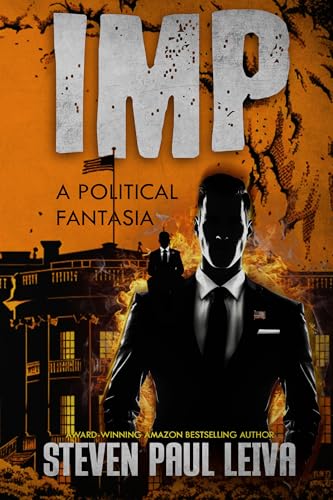
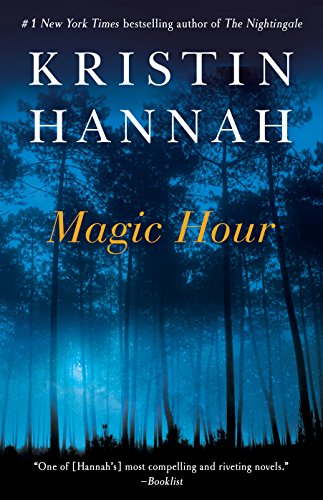
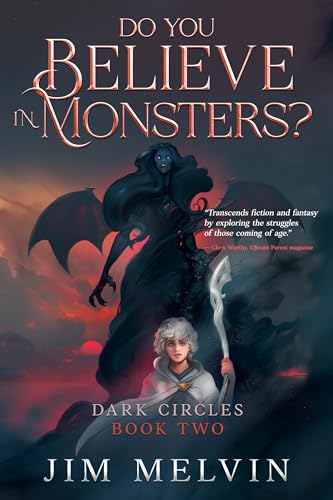






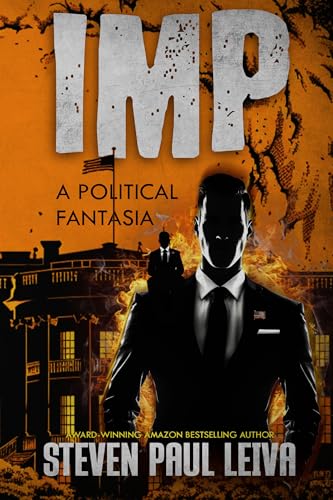












 David lives in Columbia South Carolina, with his wife and their blue-eyed cat, Bonnie. The Reunion, his first novel, is set in nearby Charleston. The Handfasting, his second book will be published in June.
He enjoys traveling, photography, baking bread, and the Carolina beaches.
David has photographed subjects as varied as prehistoric ruins on the islands of Scotland, star trails, sea gulls, and a Native American powwow. He and his wife have traveled widely in the United States and the United Kingdom. During one trip to Scotland, they visited Crathes Castle, the ancestral home of the Burnett family near Aberdeen. In The Reunion, Michael's journey through England and Scotland allows him to sketch many places they have visited.
David spent years in school(!), and he has graduate degrees in psychology and education. He and his wife have two daughters.
David lives in Columbia South Carolina, with his wife and their blue-eyed cat, Bonnie. The Reunion, his first novel, is set in nearby Charleston. The Handfasting, his second book will be published in June.
He enjoys traveling, photography, baking bread, and the Carolina beaches.
David has photographed subjects as varied as prehistoric ruins on the islands of Scotland, star trails, sea gulls, and a Native American powwow. He and his wife have traveled widely in the United States and the United Kingdom. During one trip to Scotland, they visited Crathes Castle, the ancestral home of the Burnett family near Aberdeen. In The Reunion, Michael's journey through England and Scotland allows him to sketch many places they have visited.
David spent years in school(!), and he has graduate degrees in psychology and education. He and his wife have two daughters.


